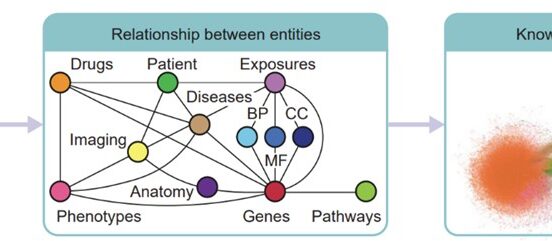EDI Inclusive recruitment initiative could enhance the ethnic diversity in senior roles

Imperial College Healthcare NHS Trust’s inclusive recruitment programme has increased Black and Minority Ethnic (BME) representation in senior leadership roles, according to a study using artificial intelligence (AI) to evaluate the initiative. Though the study also found some barriers to equitable recruitment remain.
From September 2021, the lead recruiter for more senior roles at the Trust have been required to ensure diverse and inclusive interview panels and to write an outcome letter to the chief executive, Professor Tim Orchard, with details of shortlisted candidates and their rationale for the hiring decisions.
A new study, led by the NIHR Imperial BRC Digital Health theme in partnership with the Trust’s People and Organisational Development team, has analysed routinely collected recruitment data from the programme using artificial intelligence, specifically natural language processing.
The Digital Health Theme is enabled by the iCARE Secure Data Environment, supporting safe, secure, approved, researcher access to data within the NHS and leads on many data-driven research programmes with the Trust, Imperial College London and other partners.
They found that a key component of the programme – the requirement for hiring managers to write a letter to the chief executive explaining recruitment decisions – raised the odds of a BME candidate being offered a role by 1.7 times compared to white candidates.
However, white candidates still had higher overall odds of receiving job offers for senior roles, which reflects national trends and highlights the need for further measures to address recruitment bias.
The study also found:
- At the application and shortlisting stages, BME candidates have higher odds than white candidates of applying or being shortlisted for Band 7 and 8 roles, however, this decreases with role seniority.
- BME candidates scored lower in interviews, with BME women twice as likely to receive negative assessments compared to white women.
- There are thematic differences in the types of feedback received based on the candidate and hiring managers’ ethnicity and gender.
These findings align with national NHS recruitment trends, where white candidates are more likely than BME candidates to be shortlisted and appointed to a role.
The use of AI approaches
For the first time, the team applied natural language processing to evaluate the effectiveness of the inclusive recruitment programme.
The study analysed routinely collected recruitment data from the programme between September 2021 and January 2024, which included 1,716 interview campaigns and over 1,600 letters to the chief executive.
Natural language processing is a form of artificial intelligence which extracts patterns and sentiment from unstructured free-text data. Unstructured free-text data, which represents a substantial proportion of human resources information, is time-consuming and labour-intensive to manually analyse. This study involved using natural language processing analyse the thematic trends in the letters to the CEO.
Sarindi Aryasinghe, lead author, said: “Our findings show that simple leadership accountability measures, such as requiring hiring managers to complete a letter to the CEO- can help increase ethnic diversity in senior NHS roles. However, the study makes clear that there is no silver bullet to tackling recruitment discrimination, as the data shows biases continue to influence hiring outcomes.”
Reducing inequities in recruitment requires recognising how structural and institutional racism are embedded in existing policies and practices, equipping staff to identify and address their own biases, and applying an equity lens to workforce data. Continuing to improve the quality and granularity of this data, particularly through disaggregation by ethnicity, is essential for rigorous evaluation and for the responsible use of AI in workforce decision-making.”
Supporting a diverse NHS workforce
The NHS has one of the most ethnically diverse workforces in the country but BME representation in senior leadership roles remains limited. Nationally, only 11.2% of very senior manager positions are filled by BME staff. At the Trust, 62% of its non-clinical and 61% of its clinical workforce are from BME background but are under-represented in leadership positions.
Previous data shows that the Trust’s inclusive recruitment programme has helped to boost the representation of staff from BME groups in senior roles from 38% in 2021 to 45% in 2024. This initiative has been recognised by being a finalist in several national award schemes, including the CIPD People Awards, HSJ Awards and HPMA Awards.
Louise Clark, director of workforce at the Trust: “This study highlights the real progress we’ve made through our inclusive recruitment programme. The insights from the iCARE team have been valuable in assessing the effectiveness of the key components of our inclusive recruitment process, such as the letter to the CEO.”
However, the data also confirms that systemic barriers persist. This reinforces the importance of sustained, evidence-based action. We remain committed to building a more inclusive and representative leadership that reflects the diversity of our workforce and the communities we serve.”





